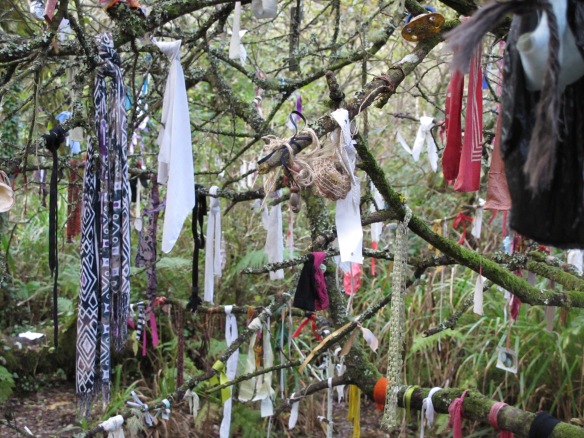Remember when Boris Johnson promised Britain a world-beating Covid test system? Or a world-beating something else. It doesn’t matter what it was going to be exactly. What matters is that we were going to beat the world, so take that, world.
Well, we seem to have developed a world-beating new strain of Covid. Yay us! It may spread more rapidly than the old ones. Tell me we’re not the envy of the world.
Mind you, it also may not transmit more rapidly. That’s still up for grabs. The scientists say they have moderate certainty that it does. But the mutations affect a part of the virus that’s likely to matter. In the lab, it looks like it might set that world-beating speed record.
Notice the multiple wiggle-words there: may, moderate certainty, likely, might. Scientists don’t like to commit themselves in the absence of evidence, bless their white-coated hearts. It’s not time to panic until they finish working on this. What it is is time to be cautious.
What’s known is that the new strain is out-performing other versions of the virus in the southeast of the country. That’s where the world-beating business comes in. Go, Virus!
But viruses get lucky sometimes. They’re in the right place at the right time, and it makes them look like champions, but only because they’ve latched onto a set of humans who are particularly helpful. So we don’t know yet if what’s happening is due to the virus or to human behavior.
In the meantime, the sensible thing to do is assume we’ve got a world-beater on our hands and go into deeper lockdown.
Which we’re doing, sort of. As of Sunday, the southeast of the country went into lockdown, with socializing limited to Christmas day. I’m simplifying. If you need the details, you either have them already or need to get your news from some sensible source. As I remind myself often when I see some bit of important news that I just can’t wedge in here, I am not a newspaper, I just play one on the internet.
So: deeper local lockdown except for Christmas day, and Christmas day, fortunately, is safe: The virus does its celebrating on Christmas eve and it’s too hung over to spread on Christmas day.
The lockdown was announced some hours before it took effect, which set off a scramble to get out of London, bequeathing us pictures and videos of socially undistanced trains headed over the river and through the woods to grandmother’s house, bearing tidings of comfort and infection.
I do love a holiday.
There’s no evidence that the new strain is more deadly and no indication that the current vaccines won’t work against it, so it’s not time to panic completely. The dangers are that (a) it may spread more rapidly and (b) it may continue to mutate, requiring the vaccines to be tweaked regularly, the way flu vaccines are every year.
But we’re not there yet.
Again, don’t panic. There’s always time to do that later.
*
In the meantime, although it has nothing to do with Covid (except to complicate a bad situation), Santa’s bringing us Brexit, with or without a deal on January 1. The negotiators are still meeting and they’ve got to be sick of hearing each other’s voices by now. A couple of days ago, trucks were backed up for five miles in Kent, trying to reach the Eurotunnel, with similar lines on the other side. And that was not just before Brexit but before France halted freight from Britain in response to the Covid variant.
Covid news snippets from the rest of the world
In a survey, 71% of the US public said they’d either definitely or probably get a Covid vaccine. That’s up from 63% in September.
And Covid is now the leading cause of death in the US–equal to fifteen daily plane crashes, with each one carrying 150 people.
Those two statistics might actually be related. But the second one doesn’t include excess deaths–the people who don’t get counted because of reporting delays, miscodings, and non-Covid deaths that are caused by the pandemic’s disruptions. Add those in and the numbers could be as much as 20% higher.
*
Latvia has introduced an automatic Covid testing booth. It eliminates the risk to medical workers who’d otherwise have to test people. A robot arm hands you your vial, you give it your sample, and it gets back to you within 24 hours.
I don’t think I ever used the word vial as much as I have this year.
*
A small US study says schools aren’t necessarily a big factor in the spread of Covid, but the small print is says that this depends on everyone wearing masks and keeping six feet apart, and on testing anyone who’s been in contact with anyone who might be infected. That would allow a school to stay open unless there’s an outbreak.
So yes, do read the small print.
*
A French study says that socializing, eating out, and going to bars and gyms seem to be more dangerous activities than using public transportation or shopping.
That’s not absolute proof. All they can say is the statistically they’re associated with a greater risk. No one can spot the moment when the virus jumps from one person to the next. Still, it’s worth knowing.
*
A story on Covid and holiday events in Fredericksburg, Texas, included the following quote: “Everyone knows Covid is a risk, but if I want to go lick the handrails at the hospital, that is my God-given right.”
If someone could send me the relevant passage from the Bible, I’d be grateful. Not because I run my life by what it says in there, but I really would love to know.



